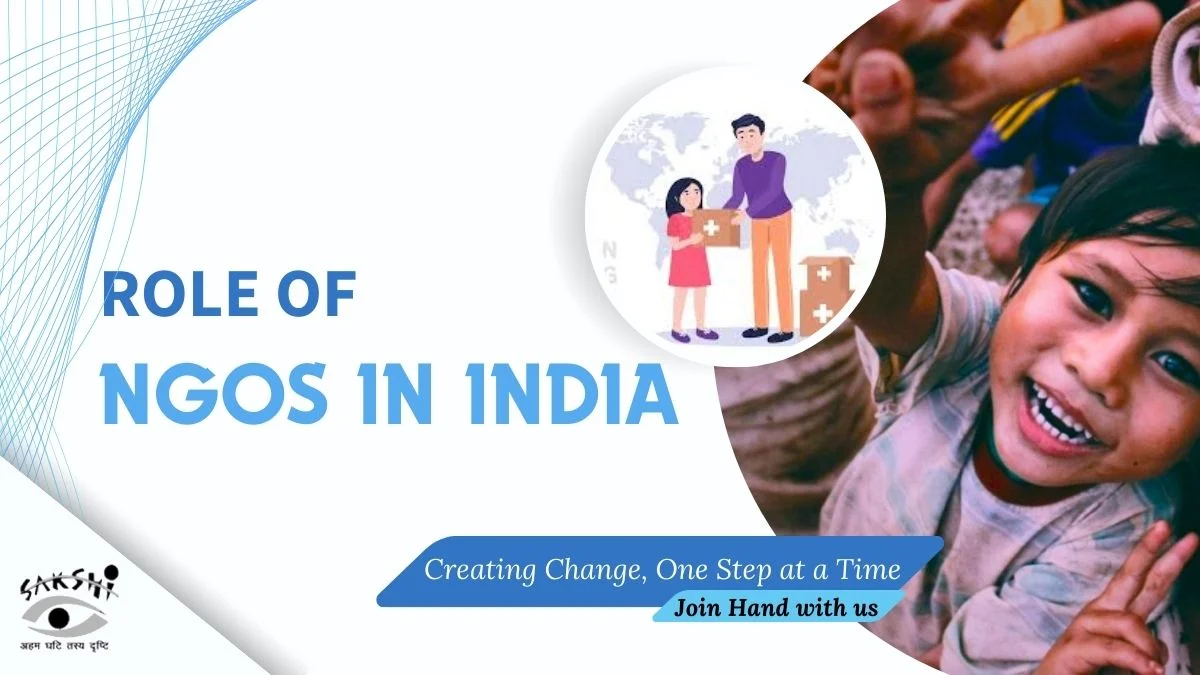
India is a nation characterized by diversity, dreams, and deep-seated development issues. From impoverished villages to urban metropolises, people are working to build a better life. In many areas where government help struggles to get through, one element is working with commitment and compassion: NGOs.
Non-Governmental Organizations are working selflessly throughout the nation, providing hope, healing, and help to those who need it most. This blog will take you through the heart of India’s social change, led not just by rules and policies but by those people whose dedication and passion are already changing lives. Learn about the living impact of India’s top NGO in India and why they are necessary to a future that we hope will maximize equity, justice and prosperity for all.
What Are NGOs and Why Do They Matter?
Non-governmental organizations (NGOs) are independent groups that focus on addressing social, economic, and environmental issues and do not belong to the government and do not have a profit motive. In India, NGOs work within the community to assess the challenges faced by communities and to provide locally developed solutions. NGOs can undertake everything from building schools, to providing free health check-ups, to planting trees; NGOs help complete the puzzle for challenges that public services are unable to meet.
How NGOs Are Changing Lives in India
1. Education For All
In India, many children still do not have access to basic education. NGOs in India are working hard to fix that. They create schools, train teachers, and build Education programmes for children who would not get the opportunity to study otherwise. Educating even the most remote children transforms their lives.
2. Health for All
In remote areas, hospitals can be far away and expensive. Some Best NGOs In India run mobile clinics and health camps. They provide free treatment, check ups, and awareness programs to prevent disease and save lives.
3. Empowering Women and Girls
Women and girls face a lot of social and economic obstacles in India. NGOs empower girl child and women by providing them opportunities to learn new skills, attain financial independence, and build a voice to advocate for their rights. Empowering women leads to stronger families and healthier communities.
4. Safeguarding our Environment
With mounting pollution and climate challenges, NGOs are leading the way towards protecting nature. They are planting trees, cleaning rivers, and generating awareness on living in an environmentally friendly way, which are all actions that will help secure a cleaner tomorrow for future generations.
5. Assisting in times of Disaster
When floods, earthquakes, and disasters occur, NGOs are quick to respond. NGOs of humanitarian relief and Rapid Response collect and provide food, shelter, clothes and emotional support and aid, while also helping people get back on their feet.
Why NGOs Are Important for India’s Growth
India is growing fast, but not everyone is progressing at the same speed – many people are still stuck without basic needs like food, clean water, and education. This is where NGOs step in. They deal with the people that are left behind and try to bring people along with them. They advocate for equality and equal rights and for better opportunities.
Working Together: NGOs and Government
NGOs usually collaborate with government to improve the effectiveness of their programs. NGOs often facilitate child care centers, adult education classes, health awareness campaigns, etc. In this partnership, the government is better able to expand the reach of its programs into rural areas or in populations where it doesn’t traditionally reach.
The Challenges NGOs Face in India
Funding Constraints: NGOs struggle with inconsistent sources and amounts of funding. This threatens the sustainability and reach of their programs, especially in rural and disadvantaged areas.
Complex Bureaucracy: Governments impose multiple rules, permits, and approval processes that are often cumbersome, time-consuming and frustrating to navigate. The result is that NGO-led work is often delayed or never realized, leading to a lack of accountability or an inability to demonstrate impact.
Shortage of Skilled Personnel: NGOs often do not have access to qualified employees or volunteers. Consequently, NGOs struggle to professionally manage projects or scale up their programs into additional projects or regions.
Public Mistrust: Some previous examples of fund misuse on the part of some NGOs have led to skepticism. Efforts to build and maintain credibility with donors and community take ongoing work.
Regulatory Pressure: Many regulations can change e.g. FCRA compliance, 80G certification, etc take time, expertise and resources. These regulations can be often cumbersome and challenging to complete 80G NGO procedure and small NGOs often do not have enough resources to meet these demands.
The Future of NGOs in India
NGOs are evolving with the times. Nowadays NGOs utilize technology, social media, and online fundraising to expand their influence, and they are seeing many more young people stepping up as volunteers and change-makers. Overall, the outlook is hopeful, with many more hands to help and minds to come up with new ideas.
Conclusion: Small Help, Big Impact
NGOs in India aren’t just service providers, they are hope-generators. Whether it’s teaching one child, treating one patient, or saving one tree, their work accumulates to create the BIG changes. By again, donating, volunteering, spreading awareness to some of the Top NGO in India, you can generate waves of impact. In a massive and diverse country like India, every effort matters. And together, we can create a better and brighter future for everyone.
So, the next time you notice a cause that speaks to you – take a step. Because change happens with someone who cares.

